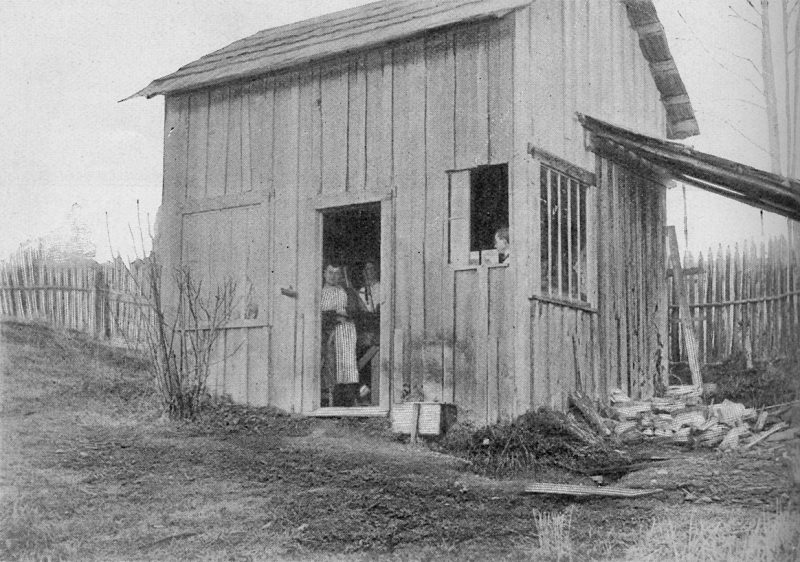The day that Nobody shot the president dawned like any other September day in Home, Washington. In the waning glow of the late-summer sun, tomatoes hung heavy on the vines. “Ours are the pride of the Sound. If you doubt it, come and sample them,” residents bragged in Discontent: Mother of Progress, the colony’s newspaper. But as always happens at this time of year, as if beckoned by the September light, the spiders had emerged, too. Their webs could be found everywhere, stitching together house beams, windowpanes, fence posts, the fronds of sword ferns, and even the bent vines of the tomato plants.
In September 1901, eighty-two residents were spread across the east-facing slope above Joe’s Bay, living upon land that just five years before had been thick with towering Douglas firs. When the three original families first arrived, in 1896, they sought to establish a refuge from the clamor and strife of industrial America. But unlike the half dozen or so other utopian experiments that dotted the shores of Puget Sound in the late nineteenth century, this one rejected socialist models and instead embraced principles of anarchism. The founders called their settlement Home, and its reputation as a rare abode for individual freedom and liberty, spread by word of mouth and colony newspapers, attracted anarchists, freethinkers, and other radicals from across the country.
One early resident, James Adams, who had lived in Home for several years, was basking in a recent opportunity to describe Home to the general populace. The Tacoma Evening News had published his letter explaining the philosophy at the heart of the colony:
We are neither Anarchists nor free lovers in the accepted definition of these terms by beef-necked moralists. As Anarchists, we believe that if nature’s laws are diligently studied, and strictly observed, that is all that is necessary to insure man’s salvation now, and for all time to come. As freelovers, we believe that individualism means that we have the inalienable, constitutional and individual right to love whom we may, to love as long or short a period as we can, to change that lover every day if we please; and with that neither God, devil, angel, man or woman has any right to interfere.
This argument might seem odd, coming as it did from a white-bearded septuagenarian who had been happily married to his wife for almost fifty years, but like many in Home, Adams believed in and advocated for the idea of absolute freedom.
After relocating from Boston to Home that summer, James Ferdinand Morton Jr. had taken over as the editor of Discontent. In his thirties, with a full head of wavy red...
You have reached your article limit
Sign up for a digital subscription and continue reading all new issues, plus our entire archives, for just $1.50/month.
Already a subscriber? Sign in





